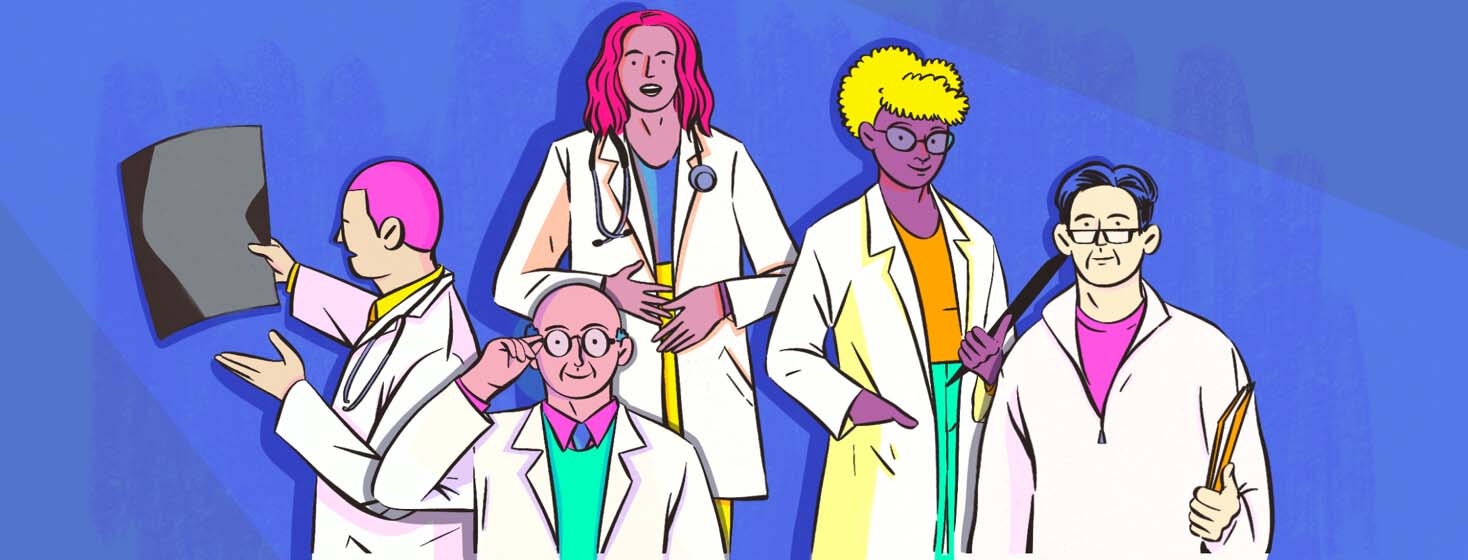My Chronic Hives Treatment Team
Not only are chronic hives difficult to diagnose, but there are also pretty difficult to treat. If you've read my previous articles, you'll know that I went through two other allergy "experts" before I found a doctor who was able to give me a diagnosis and who continues to treat me now. He is wonderful at what he does, but the complexity of my condition means that I need to have other doctors included in my treatment team.
Allergists and immunologists
We will start with my allergist/immunologist. Not only did he do the diagnosing, but he also continues to work closely with me to modify and adjust my treatment plan as needed. After my diagnosis, we worked together to come up with a treatment plan that would work for me. You can read Part 1, Part 2, and Part 3 of my treatment journey.
But as my symptoms continue to evolve, so does my treatment plan. Some of the medications I'm on require that I get labs checked frequently, and since this is the doctor who prescribed the medicines, he's the one who also keeps track of my labs. He is also careful to monitor medication levels to ensure that I'm getting the most out of my treatment and make sure that my body is metabolizing them correctly. He is the most important doctor in treating my hives but is definitely not the only person helping me manage.
Primary care physician
My primary care doctor is also part of this team. Because I have a number of chronic health conditions, it's her job to make sure that everything is working in concert. She doesn't treat my hives, at least not directly anyway, but she oversees my treatment. She can also communicate with my allergist/immunologist to make sure that my condition is controlled in the best way possible.
Specialists can be hard to reach sometimes, so my primary care doctor is a good point of contact if I need something urgently, like steroids, to treat my hives.
Dermatologist
I also see a dermatologist. Hives primarily affect the skin, so it makes sense that a skin doctor would be part of my treatment team. Sometimes my dermatologist is just a point of contact, meaning I can reach out with questions or have my allergist/immunologist coordinate different parts of my treatment.
A few months ago I needed a skin biopsy to rule out a specific type of hives. Because these lesions have to be biopsied at a specific point in their development, my allergist/immunologist office and dermatology office were both ready to fit me into their schedules, and I would go to one or the other depending on their availability.
I ended up not going to the dermatologist for the biopsy, but it was still important for my doctor to be involved and aware of what was going on.
Rheumatologist
A rheumatologist can also be part of the treatment team, although I do not currently have one. Rheumatologists work primarily with autoimmune conditions. They can help coordinate medications used to treat autoimmune disorders and help find ways to reduce inflammation in the body.
It is sometimes vital to have a team of doctors to treat different conditions. My allergist/immunologist, primary care doctor, and dermatologist all have their unique roles in treating and managing my condition. They are able to work together to ensure that I am getting the most effective treatment.
Who do you have on your chronic hives team? Let us know in the comments!

Join the conversation